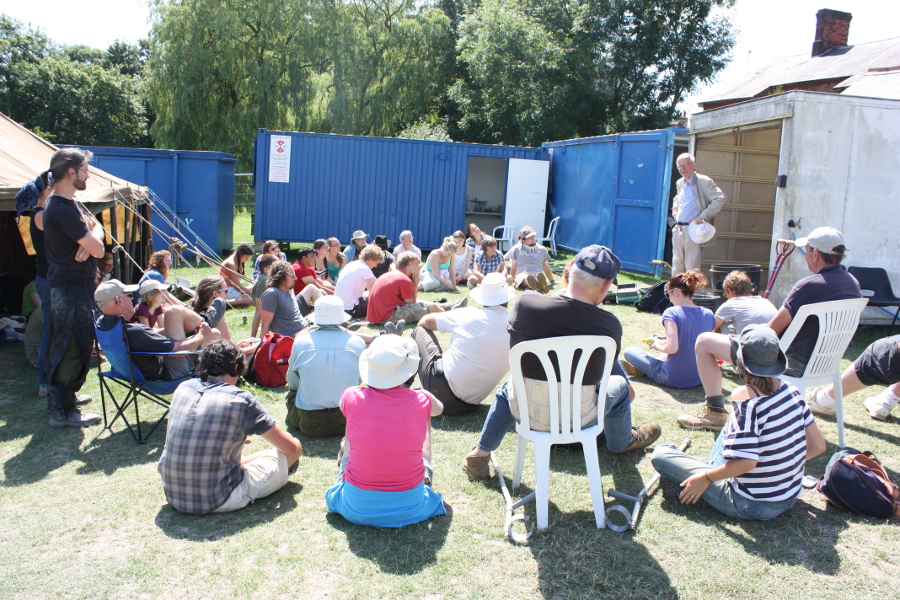We are extremely sad to convey the news that Professor Nicholas Brooks, a key member of the Lyminge Archaeological Project steering committee, passed away after an operation on the 2nd February 2014.
Nicholas was Emeritus Professor at the University of Birmingham, having joined the university as Professor of Medieval History in 1985. He was the Dean of the Faculty of Arts from 1992-5, Associate Dean from 1996-7, and was a Fellow of the British Academy and continued to research into Anglo-Saxon history well into his retirement. His publications are extremely numerous and much of his work from the 1960s onwards is considered debate-changing and key texts in Anglo-Saxon studies. His recent publication of the Christ Church Canterbury charters (2013) with Susan Kelly is a vitally important contribution to charter studies and the history and archaeology of Anglo-Saxon Kent.
Nicholas was extremely supportive of our project, and visited almost every single year of its life, from the earliest digs in 2008. His detailed knowledge of the history of the Anglo-Saxon Monastery at Lyminge was invaluable, and he always delighted in giving

Nicholas joined us for the day in 2013 and helped excavate SFB 7 with student Adrianna from the University of Kent.
impromptu lectures to our students and volunteers on site which were universally enjoyed. He always joined in with the digging when he visited, and was on site at some very significant moments, in particular the discovery of the Lyminge plough coulter. He even got stuck in on one of the hottest days that we experienced in 2013, and was particularly thrilled to find Saxon vessel glass in a sunken-featured building.
His contributions to our steering committee meetings were always incredibly valuable, with pertinent questions and points that we hadn’t considered, and it was clear from our correspondance that he really looked forward to coming all the way to Reading from Birmingham to hear about the progress the project was making.
He will be sorely missed by the Lyminge team both for his incredible knowledge of the period and for his genial friendship and unwavering support of our endeavours.


